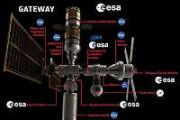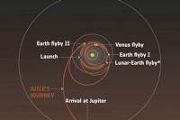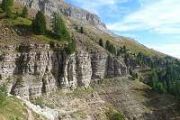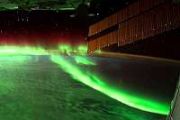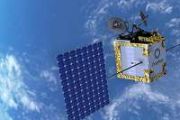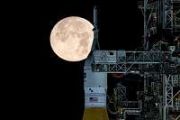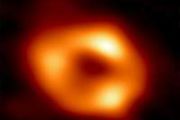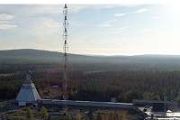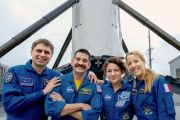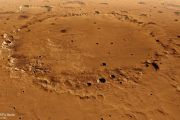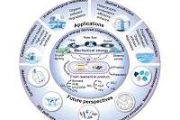
Copernical Team
China ramps up CHSN01 fusion magnet jacket for cryogenic reactors
 China has produced 30 tons of cryogenic jacket material made from its CHSN01 steel in continuous lengths of about 5 km for use in Cable-in-Conduit Conductors for future fusion reactors. The jacket is designed for magnets that must endure strong fields and very low temperatures in advanced fusion devices.
Mechanical tests at 4.2 K show the CHSN01 jacket reaches an average yield strength of
China has produced 30 tons of cryogenic jacket material made from its CHSN01 steel in continuous lengths of about 5 km for use in Cable-in-Conduit Conductors for future fusion reactors. The jacket is designed for magnets that must endure strong fields and very low temperatures in advanced fusion devices.
Mechanical tests at 4.2 K show the CHSN01 jacket reaches an average yield strength of Superradiant spin teamwork yields self driven microwave signals
 When quantum particles work together, they can produce signals far stronger than any one particle could generate alone, a cooperative phenomenon known as superradiance that has often caused rapid energy loss in quantum systems and created challenges for quantum technologies. A study published in Nature Physics shows that the same collective effect can instead generate self-sustained, long-lived
When quantum particles work together, they can produce signals far stronger than any one particle could generate alone, a cooperative phenomenon known as superradiance that has often caused rapid energy loss in quantum systems and created challenges for quantum technologies. A study published in Nature Physics shows that the same collective effect can instead generate self-sustained, long-lived International Space Station crew to return early after astronaut medical issue
 NASA crewmembers at the International Space Station will return to Earth within days after an astronaut suffered a health issue, the US space agency said Thursday, the first such medical evacuation in the orbital lab's history.
Officials did not provide details of the medical event but said the unidentified crewmember is stable. They said it did not result from any kind of injury onboard or
NASA crewmembers at the International Space Station will return to Earth within days after an astronaut suffered a health issue, the US space agency said Thursday, the first such medical evacuation in the orbital lab's history.
Officials did not provide details of the medical event but said the unidentified crewmember is stable. They said it did not result from any kind of injury onboard or Trimble positioning tech to enhance Lucid Gravity lane level navigation
 Trimble has agreed to provide positioning technology that will feed navigation and driver assistance systems in the Lucid Gravity electric vehicle, delivering centimeter-level accuracy in conditions where conventional GPS often loses reliability, such as tunnels, parking structures and dense urban corridors.
The system combines Trimble RTX corrections with the ProPoint Go positioning engin
Trimble has agreed to provide positioning technology that will feed navigation and driver assistance systems in the Lucid Gravity electric vehicle, delivering centimeter-level accuracy in conditions where conventional GPS often loses reliability, such as tunnels, parking structures and dense urban corridors.
The system combines Trimble RTX corrections with the ProPoint Go positioning engin Tiangong science program delivers data surge
 Chinese astronauts and ground-based science teams completed 86 new scientific and technological tasks on the Tiangong space station in 2025, underscoring the outpost's expanding role in research, according to the China Manned Space Agency.
The agency said that in 2025 a total of 1,179 kilograms of experimental instruments, materials, and other necessities for science and technology mission
Chinese astronauts and ground-based science teams completed 86 new scientific and technological tasks on the Tiangong space station in 2025, underscoring the outpost's expanding role in research, according to the China Manned Space Agency.
The agency said that in 2025 a total of 1,179 kilograms of experimental instruments, materials, and other necessities for science and technology mission The electrifying science behind Martian dust
 Mars, often depicted as a barren red planet, is far from lifeless. With its thin atmosphere and dusty surface, it is an energetic and electrically charged environment where dust storms and dust devils continually reshape the landscape, creating dynamic processes that have intrigued scientists.
Mars, often depicted as a barren red planet, is far from lifeless. With its thin atmosphere and dusty surface, it is an energetic and electrically charged environment where dust storms and dust devils continually reshape the landscape, creating dynamic processes that have intrigued scientists. China tallies record launch year as lunar and asteroid plans advance
 China's space sector completed 93 orbital launch missions in 2025, the highest annual total the nation has recorded.
China Aerospace Science and Technology Corp (CASC), the main State-owned contractor, closed out the year on Dec 31 with a Long March 7A launch from the Wenchang Space Launch Center in Hainan that placed two technology demonstration satellites into orbit. The company conducte
China's space sector completed 93 orbital launch missions in 2025, the highest annual total the nation has recorded.
China Aerospace Science and Technology Corp (CASC), the main State-owned contractor, closed out the year on Dec 31 with a Long March 7A launch from the Wenchang Space Launch Center in Hainan that placed two technology demonstration satellites into orbit. The company conducte Barred spiral galaxy spotted 11.5 billion years in the past
 Research led by Daniel Ivanov, a physics and astronomy graduate student in the Kenneth P. Dietrich School of Arts and Sciences at the University of Pittsburgh, has identified a contender for one of the earliest known spiral galaxies containing a stellar bar, a structure that plays a role in how galaxies evolve. The system, designated COSMOS-74706, appears as a barred spiral galaxy from a time wh
Research led by Daniel Ivanov, a physics and astronomy graduate student in the Kenneth P. Dietrich School of Arts and Sciences at the University of Pittsburgh, has identified a contender for one of the earliest known spiral galaxies containing a stellar bar, a structure that plays a role in how galaxies evolve. The system, designated COSMOS-74706, appears as a barred spiral galaxy from a time wh NASA cancels spacewalk due to medical issue and may bring the crew back early
Verifying that you are not a bot
ESA preview 2026
 Video:
00:06:21
Video:
00:06:21
As a new year begins, let’s take a look at what’s ahead for the European Space Agency in 2026. From Earth to the farthest reaches of the Solar System, 2026 marks a year of firsts that continue to shape the future of space.


